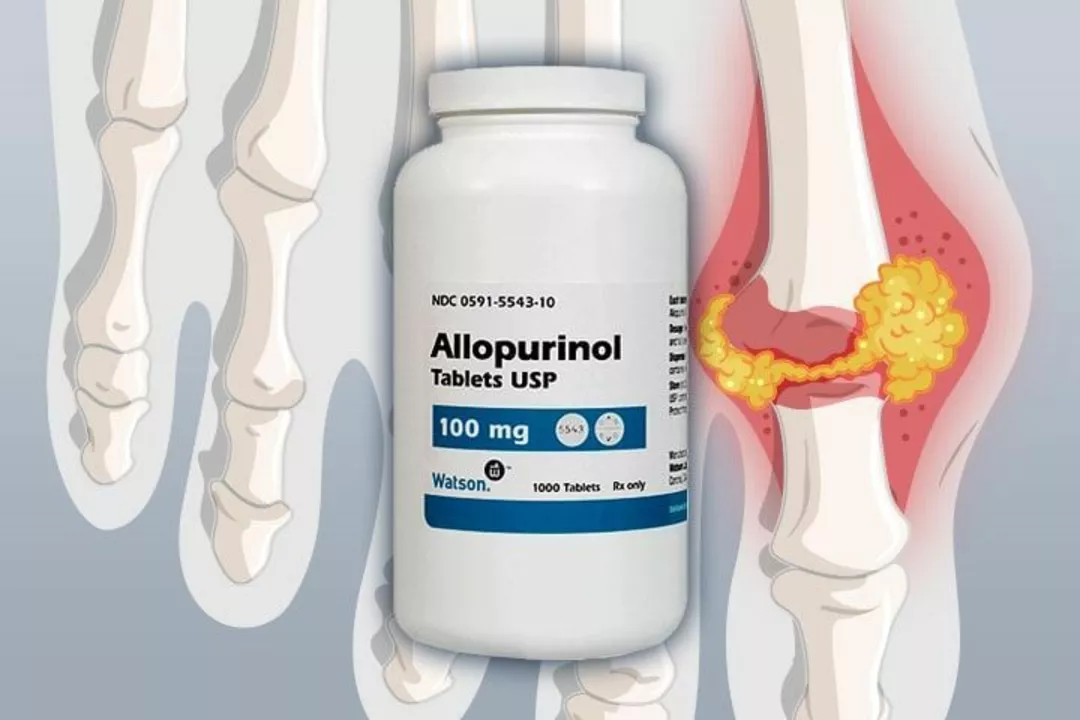Understanding Gout and Hyperuricemia
Gout is a painful form of arthritis that occurs when high levels of uric acid in the blood lead to the formation of urate crystals in the joints. These crystals can cause sudden, severe pain, redness, and swelling, often in the big toe. Hyperuricemia, on the other hand, is a condition in which there is an abnormally high level of uric acid in the blood. Although not all people with hyperuricemia develop gout, it is a significant risk factor for the disease. In this section, we will discuss the causes and symptoms of gout and hyperuricemia, and how they are related.
There are several factors that can contribute to the development of gout and hyperuricemia, including genetics, diet, medications, and certain medical conditions. A diet high in purines – substances found in many foods, particularly in meat and seafood – can lead to increased production of uric acid. Additionally, some medications, such as diuretics and low-dose aspirin, can raise uric acid levels. Conditions like obesity, diabetes, and kidney disease can also contribute to the development of gout and hyperuricemia.
The Importance of Allopurinol in Gout Management
Allopurinol is a medication commonly used to treat gout and hyperuricemia. It belongs to a class of drugs called xanthine oxidase inhibitors, which work by reducing the production of uric acid in the body. By lowering uric acid levels, allopurinol can help prevent gout attacks and reduce the risk of complications associated with hyperuricemia, such as kidney stones and joint damage. In this section, we will discuss the benefits of allopurinol in managing gout and hyperuricemia, as well as how it is taken and its potential side effects.
One of the main benefits of allopurinol is its ability to prevent gout attacks. When taken regularly, allopurinol can reduce the frequency and severity of gout attacks, allowing individuals to maintain a better quality of life. Additionally, by lowering uric acid levels, allopurinol can help dissolve existing urate crystals and prevent new ones from forming, which can reduce joint inflammation and damage over time. Furthermore, allopurinol has been shown to be effective in preventing kidney stones associated with hyperuricemia, as well as reducing the risk of other complications.
Starting Allopurinol Treatment: What to Expect
When starting allopurinol treatment, it is important to be aware of what to expect in terms of dosage, potential side effects, and the need for regular monitoring. Allopurinol is typically taken once daily, with the dosage adjusted based on the individual's uric acid levels and response to treatment. It is essential to take allopurinol consistently, even during gout attacks, to achieve the best results. In this section, we will discuss what to expect when starting allopurinol treatment, including potential side effects and the importance of regular monitoring.
As with any medication, there are potential side effects associated with allopurinol. Some common side effects include rash, nausea, diarrhea, and drowsiness. More severe side effects, such as liver problems and a severe skin reaction called Stevens-Johnson syndrome, are rare but can be serious. It is important to discuss any side effects with your healthcare provider, as they can help determine if allopurinol is the right treatment for you. Regular monitoring of uric acid levels, kidney function, and liver function is also essential while taking allopurinol, as this can help ensure the medication is working effectively and safely.
Allopurinol and Lifestyle Modifications for Gout Management
While allopurinol is an effective treatment for gout and hyperuricemia, it is important to remember that lifestyle modifications also play a crucial role in managing these conditions. A balanced diet low in purine-rich foods, maintaining a healthy weight, staying hydrated, and exercising regularly can all help reduce the risk of gout attacks and lower uric acid levels. In this section, we will discuss the importance of combining allopurinol treatment with lifestyle modifications for optimal gout management.
By making dietary changes, such as limiting the intake of high-purine foods like red meat, organ meats, and seafood, individuals with gout and hyperuricemia can help lower their uric acid levels and reduce the risk of gout attacks. Maintaining a healthy weight can also have a significant impact on uric acid levels and gout risk, as excess body fat can contribute to increased production of uric acid. Staying hydrated by drinking plenty of water can help dilute uric acid and promote its excretion through the kidneys. Regular exercise can improve overall health and may help reduce the frequency and severity of gout attacks. Combining these lifestyle modifications with allopurinol treatment can lead to better gout management and improved quality of life.
When Allopurinol Is Not Enough: Alternative Treatment Options
While allopurinol is effective for many individuals with gout and hyperuricemia, there are cases in which it may not be enough to manage these conditions. Some individuals may not respond well to allopurinol or may experience intolerable side effects. In these cases, alternative treatment options may be necessary. In this section, we will discuss some of these alternatives, including other medications and therapeutic approaches.
There are other medications available for the treatment of gout and hyperuricemia, such as febuxostat, another xanthine oxidase inhibitor, and probenecid, a uricosuric agent that increases uric acid excretion through the kidneys. These medications may be considered for individuals who are unable to take allopurinol or require additional therapy to achieve optimal uric acid control. Additionally, medications like nonsteroidal anti-inflammatory drugs (NSAIDs), colchicine, and corticosteroids can be used to manage acute gout attacks and provide pain relief. In some cases, therapeutic approaches like joint aspiration or corticosteroid injections may be necessary to manage severe gout symptoms. It is essential to work closely with your healthcare provider to determine the best treatment approach for your individual needs.

